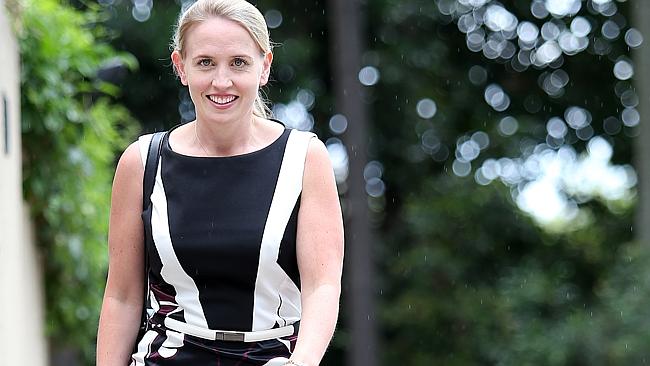Yet another frozen berry product has been recalled as the Nanna’s Hepatitis A scare deepens
CHILDREN from at least 18 Queensland schools are at risk of contracting hepatitis A after consuming contaminated frozen berries in tuckshops or cooking classes.
It comes as health authorities reveal the contaminated berries were on the shelves as early as November last year.
Another eight state schools in Queensland were added to the tally yesterday bringing the total number to 11 while four Brisbane Catholic schools and three Catholic schools in Cairns also said they had served the berries to school children.

Queensland Minister for Education Kate Jones said yesterday that student safety and wellbeing was the number one priority. Picture: Jack Tran
Trinity Beach State School in Cairns is among those that have sold products with the berries for the past three weeks but have now disposed of the fruit.
No Queensland Health facilities have been caught up in the outbreak but it is believed one private hospice has and its residents have been put on alert.
State schools have contacted parents about the situation.

Trinity Beach State School is one of a growing number of Queensland schools caught up in the frozen berries hepatitus A virus scare. Picture: Brendan Radke
Queensland Minister for Education Kate Jones said yesterday that student safety and wellbeing was the number one priority.
“A letter for parents with the relevant Queensland Health advice has been provided to schools to give to parents if their school has used the berry products,” Ms Jones said.
The Education Department will not release the names of the schools and some Catholic dioceses are following suit.
However, the Cairns Catholic Diocese has confirmed St Mary’s Catholic College, Mother of Good Counsel School and St Andrew’s Catholic College used the berries.
After-school care provider School’s Out at Wooloowin State School has written to parents to advise of its use of the berries in smoothies on February 5.
In the Townsville region, 28 Catholic schools are checking if they have used the products but have ruled out exposure to children at the two boarding schools.
